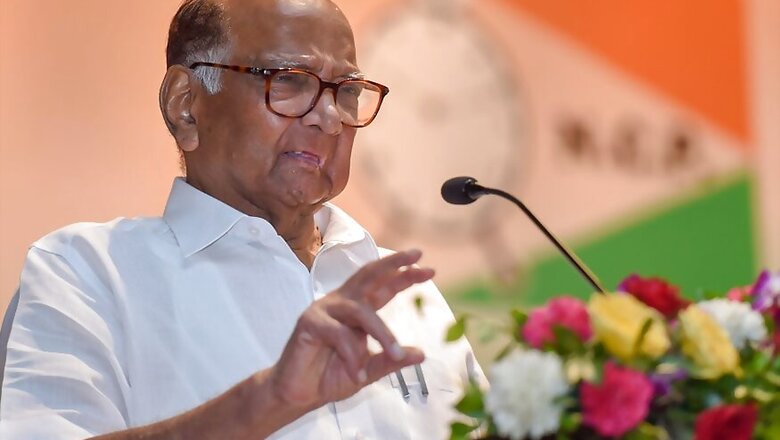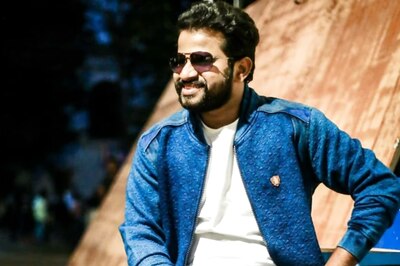
views
Pune: NCP president Sharad Pawar, credited for being the chief architect of the Shiv Sena-NCP-Congress alliance government in Maharashtra, on Thursday said although many people thought he would retire from active politics, the people of the state, especially the youth, did not allow that to happen.
He was speaking at the inauguration of the agro exhibition organised at the Krishi Vigyan Kendra in Baramati, his home turf, where Chief Minister Uddhav Thackeray was also present.
Before Pawar started his speech, Thackeray and Deputy Chief Minister Ajit Pawar greeted the NCP chief with a bouquet of flowers.
Referring to it, Pawar said in a lighter vein, "Before I could start my address, I was given a bouquet of flowers by them (Thackeray and Ajit Pawar)...It seems they have decided to retire me. I have no objection to that."
"A lot of people thought that I will retire (from active politics), but that did not happen. In fact, the people of Maharashtra and the youth did not allow that to happen," he added.
The BJP and the Shiv Sena had fought the Maharashtra Assembly polls together in October last year, but their alliance collapsed after the Uddhav Thackeray-led party walked out and joined hands with the Congress and the NCP to form the Maharashtra Vikas Aghadi (MVA) government.
Pawar is considered the chief architect of the unlikely alliance of the three parties, the first such political arrangement in the history of the state.
During his speech, Pawar also said that agricultural practices across the world were changing and with new innovations, the production has also increased.
"In a very populated country like India, farming and agriculture is an important sector to fulfil the needs of the common people. That is why, there is a need to bring in changes, make improvements and encourage research. We also need to ensure that these things reach the doorstep of the farmers," the former Union Agriculture Minister said.
He lamented the restrictions imposed on the research of the Genetically Modified (GM) crops. "There are limitations on the researchers to conduct research on GM crops. The main reason behind it is that the Supreme Court has put restrictions on conducting research in this field," Pawar said.
"I cannot speak whether it is the judges' job (to put such restrictions)...It is better they don't look into such issues," Pawar said.
"I have no objection if something is stopped if it is harmful. But if something is useful and new, then stopping it is not appropriate," he added.
A few years ago a new variety of sugarcane was invented and their research was about how a sugarcane can be cultivated using minimum water, he said.
"We sent some experts in the field to Indonesia to see if that can be implemented here, but that variety turned out to be genetically modified and since there were restrictions by the Supreme Court on the GM research, all our experiments had to be stalled," Pawar said.
"In Indonesia, there is no law or no restrictions put by their court. They can carry out research on GM crops and production, but in India, there are limitations," he added.
Pawar said that the technique of drip irrigation is being by majority of farmers in Baramati and the surrounding areas. "There is a lot of talk about the sugarcane cultivation and water use, but because of drip irrigation, sugarcane cultivation is possible even in minimum use of water. Drip irrigation has reached every household in this area," he said.
Pawar said said the government wants to put curbs on the use of water for sugarcane cultivation and it can be done with the help of a drip irrigation system.
"But common farmers cannot afford to make investments in drip irrigation. Therefore, the government should provide funds and subsidies and encourage farmers to adopt drip irrigation system," he said.




















Comments
0 comment